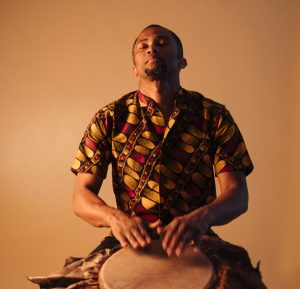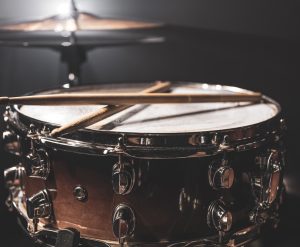
“I know where I’m from not dumb ditty dumb. From the Bass Motherland, the place of the Drum.” - from "Can't Truss It" by Public Enemy
The drum holds immense significance in African history and culture, playing a central role in various aspects of life across the continent.
Highlighting the Importance of the Drum in African History
 Communication: Drums have been used as a means of communication in many African societies. Different drum beats and rhythms convey specific messages, serving as a form of long-distance communication. This was particularly crucial in areas where spoken language alone was insufficient.
Communication: Drums have been used as a means of communication in many African societies. Different drum beats and rhythms convey specific messages, serving as a form of long-distance communication. This was particularly crucial in areas where spoken language alone was insufficient.
Ceremonies and Rituals: Drums play a vital role in religious ceremonies, rituals, and cultural celebrations. They are often used to invoke spirits, accompany dances, and enhance the overall atmosphere of important events. The rhythmic patterns of drums are believed to connect participants with the spiritual realm.
Social Cohesion: Drums are essential for fostering community and social cohesion. In many African cultures, communal drumming brings people together, creating a sense of unity and shared identity. Drumming circles often serve as spaces for social interaction and storytelling.
Oral Tradition: Drums are an integral part of the oral tradition in Africa. Through rhythmic patterns, historical events, stories, and cultural knowledge are passed down from generation to generation. Drums contribute to the preservation of cultural heritage.
 Dance and Movement: The drum's rhythmic beats are closely tied to traditional African dance forms. Drums provide the heartbeat of the music, guiding dancers and influencing the choreography. The synergy between drumming and dance is a fundamental aspect of African cultural expression.
Dance and Movement: The drum's rhythmic beats are closely tied to traditional African dance forms. Drums provide the heartbeat of the music, guiding dancers and influencing the choreography. The synergy between drumming and dance is a fundamental aspect of African cultural expression.
Spiritual Significance: In many African belief systems, drums are considered sacred instruments with spiritual significance. They are believed to have the power to connect with ancestors, deities, and the divine. Drumming is often an integral part of religious ceremonies and rites of passage.
Symbolism and Identity: Drums can symbolize cultural identity and heritage. Different ethnic groups may have distinct drumming traditions and rhythms that reflect their unique history, values, and social structures.
Healing and Therapy: Drumming is sometimes used for therapeutic purposes. The rhythmic patterns and vibrations produced by drums are believed to have healing properties, addressing physical, emotional, and spiritual aspects of well-being.
The drum's multifaceted significance in African history underscores its central role in shaping cultural practices, traditions, and the interconnectedness of communities across the continent.
“It’s roots are in the sound of the African or should I say the mother bringing us back again. From drumming in the Congo we came with a strong flow. For then it landed on American soil, through the blood, sweat and the toil.” - From the late great GURU (Gifted Unlimited Rhymes Universal) of Gangstarr in A Jazz Thing (Verse 1)
Note: This blog post was inspired by an amazing 2017 blog post on the website, Beats Times and Life. The following video also comes via Beats Times and Life.
Want to hear more? Check out these fantastic albums on Hoopla!


Add a comment to: The Bass Motherland: The Place of the Drum